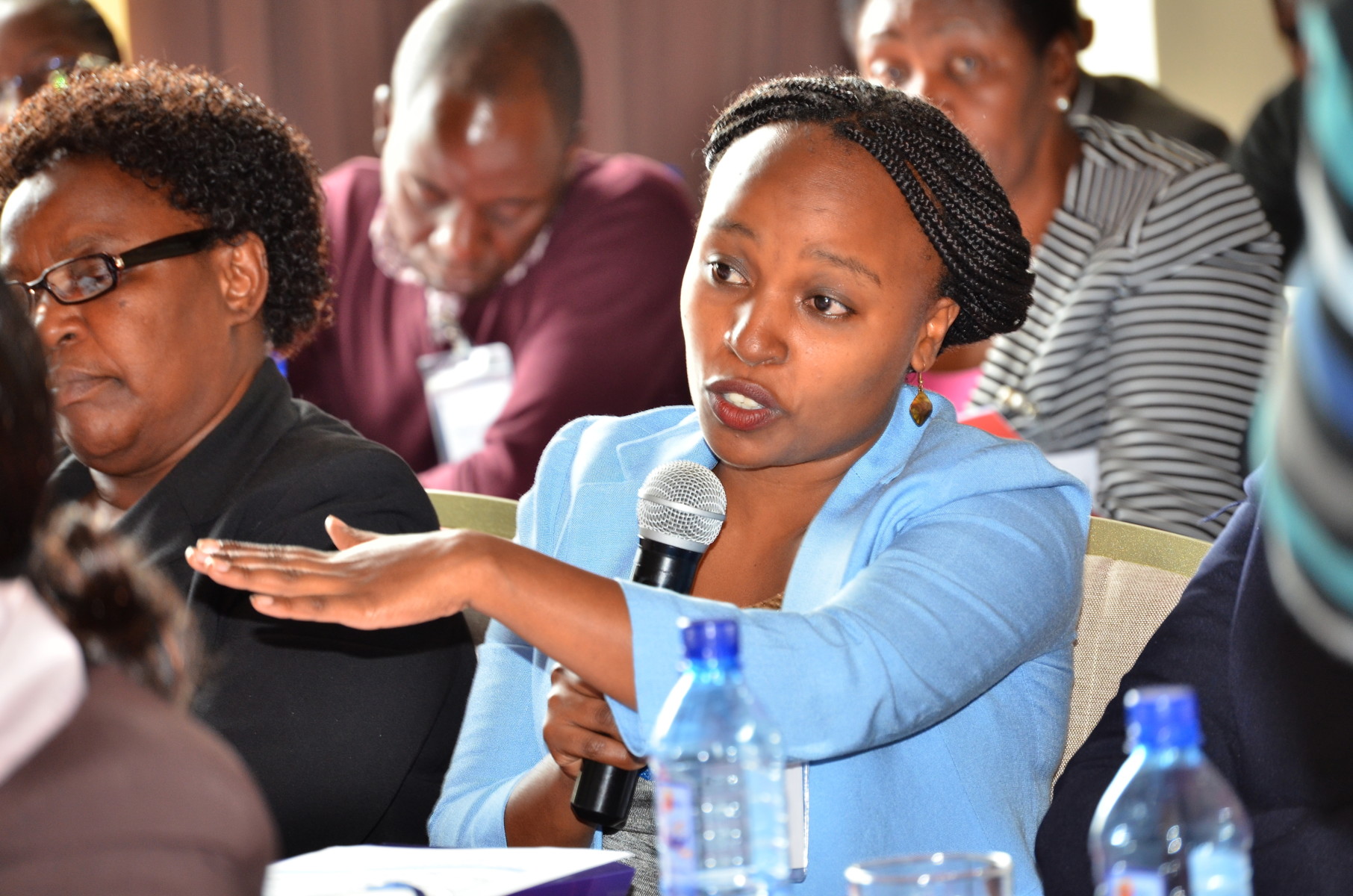On 11 May 2016, President Muhammadu Buhari of Nigeria, gave the keynote speech at Tackling Corruption Together, a major conference in London. The president, having pledged to drive out corruption in his homeland, called for an international initiative to deal with cross-border corruption and facilitate the return of stolen assets.
Watch: Secretary-General Scotland and leaders from around the Commonwealth talk about our fight against corruption at an important conference in London, May 2016
Nigeria repatriates US$ 9.1 billion
Every dollar lost to corruption is a dollar lost to investing in a child’s education, healthcare or much needed infrastructure.
— Secretary-General Patricia Scotland
Mr Buhari’s fight against corruption in Nigeria appeared to be having considerable success. According to Reuters in June 2016: “In a statement, Information Minister Lai Mohammed said cash and assets recovered between May 29 last year, when Buhari took office, and May 25 this year totalled $9.1 billion.” Other reports suggested oversight was in place to make sure the repatriated funds were spent on much needed development projects.
After Tackling Corruption Together, Nigeria asked the Secretariat for assistance. In response, we convened an international workshop in July 2016 on criminal justice administration to strengthen the capacity of judges to tackle systemic corruption .
The Secretariat also organised a meeting of high-level stakeholders on the management of recovered stolen assets. This resulted in the development of a framework for the management of recovered stolen assets, which Nigeria did not have.
In April 2017, another capacity-building workshop for judges was held in Lagos. The outcome was the production of Guidance Notes for Judges and Prosecutors on the recovery of proceeds of corruption through a non-conviction route.
How the Secretariat helped Nigeria
Speaking at Marlborough House in September 2017, Professor Itse Sagay, Chairman of the Presidential Advisory Committee Against Corruption, said: “The Secretariat helped us in the area of non-conviction based asset recovery. We were not properly trained in this area, and didn’t have the ability to recover assets without sending someone to prison, which was becoming increasingly difficult without a conviction.
“So the Secretariat organised a workshop where experts attended from all over the world and which taught us the areas, the procedures, and the avenues and ways in which asset recovery can be done without necessarily sending a person to prison.”
As a result of our work with Nigeria, assets recovered this year alone exceed by far the amount that the government has recovered over the past ten years. In addition, a clear structure for managing the recovered stolen assets has been established, including the creation of a central recovery account, to prevent funds from being ‘re-looted’.
Good news for other members
It’s not just Nigeria that’s making progress against corruption. So are other Commonwealth members, who are rated among the least corrupt in Transparency International’s 2016 Corruption Perceptions Index.
In Sub-Saharan Africa, four of the top five countries with the lowest perceived levels of corruption are Commonwealth member countries, with Botswana being the highest performing in the region.
Botswana hosts the Commonwealth Africa Anti-Corruption Centre (CAACC), which was established in 2013 by the government, the Commonwealth Secretariat and the Association of Anti-Corruption Agencies in Commonwealth Africa.
New Zealand shares top billing overall in the index with Denmark, a non-Commonwealth country. The Bahamas is the highest ranked Commonwealth member in the Caribbean, while Singapore is the best performing member state in Asia.
The index covers perceptions of public sector corruption in 176 countries. According to Transparency International, countries at the top of the index have characteristics of open government, press freedom, civil liberties and an independent judicial system.
Among Africa’s best
Commonwealth countries are also among the highest performing in the 2016 Ibrahim Index of African Governance, making up seven of the top ten ranked countries.
The Secretariat helped us in the area of non-conviction based asset recovery.
— Professor Itse Sagay, Chairman of Nigeria's Presidential Advisory Committee Against Corruption
No country in the world is untouched by corruption and some Commonwealth countries performed less well in both indices.
At Transparency International UK’s 2016 Anti-Corruption Lecture, Secretary-General Patricia Scotland recognised the continuing challenges posed by corruption including for Commonwealth member countries.
The Commonwealth brings “something very special” to international efforts against corruption, she stated, as she pledged “practical action to eliminate the scourge of corruption from institutions of governance and public life at every level”.
The Commonwealth Secretariat assists its member governments to tackle systemic corruption by supporting public sector institutions, law-makers, judges and enforcement agencies to share best practices and benefit from training.
Since its launch, the CAACC has supported nearly 20 anti-corruption agencies with training and the sharing of best practices in investigations, prosecutions, management and public education.
Dr Roger Koranteng, the Commonwealth Secretariat’s Head of Public Sector Governance, commented on our anti-corruption work in January 2017: “We continue to provide all round technical support to anti-corruption agencies in Commonwealth developing countries through innovative capacity-building, and establishing and managing regional anti-corruption agency networks.”
Read more about the Africa Anti-Corruption Centre
“One unexpected outcome of [the Tackling Corruption Together conference] is the emergence of the Commonwealth as a potential major player in providing support to reforming governments, such as Nigeria’s, to stifle abuses. Baroness Scotland, the secretary general of the Commonwealth, is perceived to have a deep commitment to waging war on corruption. By a strange quirk of history, perhaps the London summit will be best remembered for giving the Commonwealth a new lease of life.” The Times


